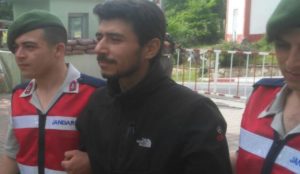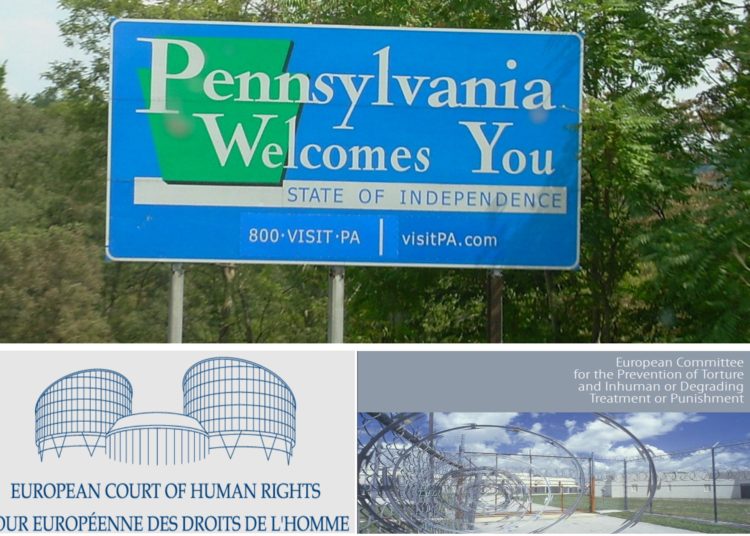Abdullah Bozkurt/Stockholm
Names like Pennsylvania, the Council of Europe’s anti-torture body, the European rights court and the human rights convention as well as the names of critical media outlets were red flagged for suggesting criminal activity in the eyes of Turkish authorities.
According to a secret government document obtained by Nordic Monitor, the Turkish police cybercrime unit developed a long list of key words and terms which suggested in their view that their use constituted terrorist activity. The rationale behind such an absurd move can be explained by a conviction on the part of the police that such terms were often used by members of the Gülen movement, a group highly critical of the government of President Recep Tayyip Erdoğan.
The secret compilation of keywords was revealed in the document, which showed the police had run a search of the content of a cell phone seized from former police chief Celal Yasin Özdemir, alleged by the government to have been a Gülenist. The keywords functioned as search terms during the examination of the content stored in Özdemir’s cell phone’s memory, SIM card and removable memory card. None of the keywords matched any data stored on the cell phone.
The name of the US state of Pennsylvania in its Turkish spelling was listed as one of the key search terms because Fethullah Gülen, who inspired the volunteer-based movement that focuses on interfaith dialogue and education, has been living in seclusion in the state’s Monroe Country since 1999, when he decided to go into self-exile. The 79-year-old Gülen has been a vocal critic of President Erdoğan on a range of issues from pervasive corruption in the government to Turkey’s aiding and abetting of armed jihadist groups around the world.
President Erdoğan has often invoked the name of Pennsylvania as a punching bag in rallies and public speeches to refer to the cleric Gülen since December 2013, when Erdoğan and his family were incriminated in major corruption investigations. Erdoğan accused Gülen of initiating graft probes that led to the ouster of four ministers from the cabinet due to an Iran sanctions busting regime.
Secret document that listed the compiled keywords, the usage of which suggested criminal acts:
Gülen denied his role, and the investigation was eventually hushed up by Erdoğan with the summary and abrupt removal of the police chiefs, prosecutors and judges who were involved the years-long criminal investigation. Evidence from the same case was later incorporated into a US federal case that was tried in New York and led to the conviction of a deputy general manager of Turkish state lender Halkbank on multiple charges including violation of US sanctions on Iran.
The Strasbourg-based European Court of Human Rights (ECtHR) and the European Convention on Human Rights (ECHR), to which Turkey is a party, were other names red flagged by the Turkish police, presumably because many Gülenists have attempted to have their cases adjudicated by the European court to get some justice after a massive crackdown in Turkey, where the rule of law has effectively been suspended and where anti-terror laws were used to punish opponents and critics.
The cases against Gülenists were tried in kangaroo courts by partisan judges. Prosecutors, many associated with the ideology of the governing Justice and Development Party (AKP), often launch criminal investigations on the whims of President Erdoğan, with a lack of evidence to support serious accusations. According to official data announced in February 2021, a total of 622,646 people have faced punitive legal action by the government in the last five years due to alleged links to the Gülen movement. Of these, 301,932 have been detained.
The ECtHR rulings are binding on Turkey, although the Erdoğan government has decided to implement the court decisions selectively in recent years. The Strasbourg court also came under fire when it referred thousands of cases filed with the court to first exhaust domestic remedies, when there is in fact no effective remedy left in the Turkish judicial system. In September 2020 ECtHR President Róbert Ragnar Spanó’s visit to Turkey drew ire from human rights defenders and the Turkish opposition when he met with officials and Erdoğan.

The police cybercrime unit also listed the names of critical media outlets as keywords in order to identify whether a suspect had subscribed to or read in the past any one of dozens of independent, critical and opposition news outlets that were shuttered by the government. The website of Zaman, Turkey’s one-time best-selling daily that was targeted because the newspaper had adopted an editorial stance critical of the Erdoğan government, was among the keywords listed by the police.
The Erdoğan government forcibly took the newspaper over in March 2016 and closed it down in July. Prior to the government seizure, Zaman’s corporate owners were seen as Gülen-linked businesspeople and were investigated on trumped-up accusations of terrorism. The daily was selling over 1.2 million copies a day at its peak in January 2015, making the newspaper the most popular in Turkey. Its website attracted millions of visitors every month.
Some of the other critical media outlets, listed among the keywords, were rotahaber, aktifhaber, samanyoluhaber, haberdar and yeniyön. Accessing the websites of these critical media outlets was considered a criminal act by Turkish authorities, who have been quick to charge anybody who subscribed to such news outlets under abusive counterterrorism laws.
The police cybercrime unit also red-flagged the Turkish name of the European Committee for the Prevention of Torture and Inhuman or Degrading Treatment or Punishment (CPT), a Council of Europe-affiliated body. It appears many Gülenists who were detained and tortured or read about terrible accounts of ill-treatment in custody and prison wanted to reach out to the CPT. Turkish authorities believed such activity was enough to raise a red flag and inserted the CPT as a keyword in their search for criminal activity.
Cover page of the secret inspection report prepared by the Istanbul police cybercrime unit and signed by police chief Özgür Karlıtepe in Istanbul on September 23, 2020:
A CPT delegation was in Turkey to conduct inspections between August 28 and September 6, 2016 and recorded some of the alleged Gülenist victims’ statements in its report. The delegation’s visit came amid widespread allegations first raised by Amnesty International, which stated that it had collected credible evidence that detainees in Turkey were beaten, tortured and on some occasions raped in official and unofficial detention centers across the country.
However, the details of the CPT report were never made public because Turkey vetoed the publication of the report and has not lifted its objection since 2016. In fact CPT President Mykola Gnatovskyy stated in 2017 that even though he “[wanted] to discuss the findings,” he could not comment on the report due to Ankara’s decision.

Nordic Monitor has published multiple reports based on the court testimony of victims who were interviewed by the CPT members. The testimony revealed accounts of the brutal torture the victims endured at the hands of the police, military and intelligence officers in unofficial detention sites in Ankara.
None of the keywords compiled by the cybercrime police found a match in the content stored in the phone of Özdemir, according to a report issued on September 11, 2020.
Red-flagged keywords included the names of critical and independent media outlets:
Özdemir is one of the police chiefs who ran surveillance on suspects who were involved in match fixing scandals that drew the wrath of the Union of European Football Associations (UEFA). He was targeted when the investigation caught up some powerful people in Turkey.
The match-fixing scandal goes back nearly a decade, when the police raided the homes of people prominent in football clubs as well as football club premises, detaining some 60 people suspected of rigging football matches in two leagues on July 3, 2011. Many high-ranking football officials from various clubs, including Fenerbahçe and Beşiktaş, were arrested on charges of fraud and match-fixing during the 2010-11 season. A total of 31 individuals, including agents, former football players and club managers, with Fenerbahçe Club Chairman Aziz Yıldırım being the highest-profile figure, were jailed pending trial.

The scandal rocked the reputation of Turkish football and resulted in a UEFA ban for Fenerbahçe and Beşiktaş in European competitions. Fenerbahçe was banned from European club competition for three seasons — with one deferred — and fellow Turkish side Beşiktaş for one. Both bans were connected to the match-fixing that took place in domestic games in 2011. The Court of Arbitration for Sport (CAS) upheld the ban and rejected Fenerbahçe’s appeal against its two-season expulsion from European competitions for match fixing. Fenerbahçe was also punished by the Turkish Football Federation (TFF) and barred from taking part in 2012 in the million-dollar Champions League tournament due to its managers’ implication in the rigging scandal.
The full report on keywords that Turkish authorities considered indications of the commission of criminal acts:
Yıldırım, regarded as the most powerful man in Turkish soccer, made a secret deal with Erdoğan to extricate himself from all charges in exchange for his and the fans’ support in elections. Fener, known as the Yellow Canaries, is believed to have the largest number of fans across Turkey. With the intervention of the government in 2014, İstanbul Chief Public Prosecutor Hasan Yılmaz, an Erdoğan loyalist, demanded the acquittal of Yıldırım, claiming that he was the victim of a plot.
In a quick retrial, all his crimes were whitewashed, on October 9, 2015, by the Istanbul 13th High Criminal Court. The appeal is still pending. As if that were not enough, the government prosecutor initiated a new prosecution against the judges, prosecutors and police investigators who were involved in the original 2011 case in which dozens of suspects were investigated, prosecuted, tried and convicted of match-fixing. A new indictment was filed on December 1, 2016 against a number of journalists, members of the judiciary and law enforcement officers.
Özdemir was arrested on May 16, 2017 and released on January 16, 2020. His case is still pending. He will return to prison if convicted.












